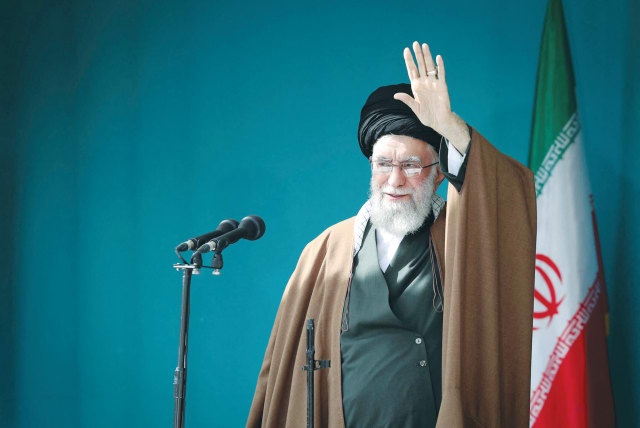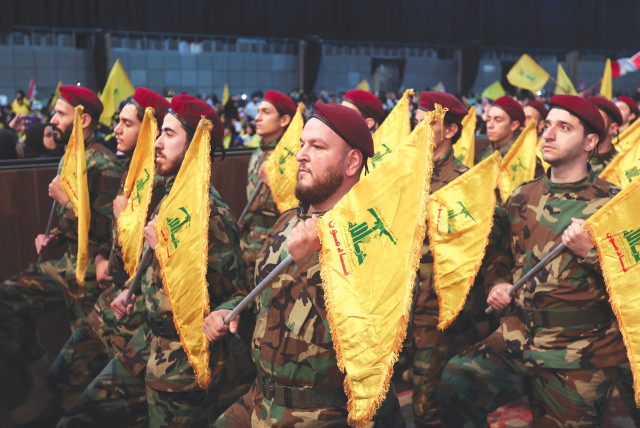A clear strategy against Iran will clarify Israel's overall national security policy - opinion

As Israel faces an increasingly contested regional environment, it is indeed worrying that the government overseen by Prime Minister Benjamin Netanyahu appears to lack clear strategic direction.
To paraphrase historian John Lewis Gaddis, grand strategy requires both a compass and a map. Metaphorically, the compass provides strategic direction toward a desired end-state, while the map is the situational awareness required to avoid major obstacles blocking one’s path ahead.
As Israel faces an increasingly contested regional environment, it is indeed worrying that the government overseen by Prime Minister Benjamin Netanyahu appears to lack clear strategic direction on any of the relevant fronts.
Regardless, the Israeli national security strategy developed before October 7, 2023, would need to be rebalanced considering threats that have emerged since the Hamas massacre of Israeli civilians.
What this means in practice is that Israel must reassess how it prioritizes and allocates its limited military and intelligence resources. While this previously appeared to focus primarily on the northern front (Hezbollah and Iran-backed activities in Syria) and Iran, decision-makers must consider new threat actors that have demonstrated a greater-than-expected capability and willingness to strike Israel, including Hamas in Gaza, the Houthis in Yemen, and the Iran-backed militias in Iraq. This should take into account both the urgency and importance of such threats.
The good news is that Israel has many of the tools required to act against these malign regional actors backed by the Islamic Republic. Its air force is world-class, its ground forces have gained valuable experience over the past six months against Hamas and Hezbollah, and its defense technology ecosystem is exceptional.
Israel also has top-tier intelligence agencies capable of reaching the most guarded malign actors in Lebanon, Syria, and beyond. No less important than the first two strategic assets is the special relationship between the US and Israel: these ties provide Jerusalem with a network of operational partners, diplomatic support in hostile international fora like the UNSC, and essential assistance to fight long wars which quickly deplete munitions stockpiles.
To be clear, the US-Israel relationship is complex and there is inevitable friction between the interests of the two separate countries whose vantage points and interests naturally differ. The inevitable policy challenges are compounded by the interpersonal complications between Netanyahu and US President Joe Biden, particularly with the prospect of elections in both countries, which increases the degree to which both leaders factor in domestic public opinion about how Israel should prosecute its war against Hamas. Yet, the alliance between the two countries, despite the fact that it has never been formalized as a defense treaty, has held up well since October 7.
But one must question how effective a superb air force, excellent intelligence, and supportive allies can be when Jerusalem has not presented a clear vision of what it aims to achieve. Netanyahu’s strategic goal against Hamas has been reduced to the unconvincing catchphrase of “total victory.”
Tragically, it is looking more and more like Israel’s tactical military success in Gaza is not being leveraged to achieve long-term aims that might unseat the deadly terrorist group Hamas from its role of ruling over Gaza. In yet another arena, Israel looks to be headed to the same type of perpetual “whack-a-mole” that it is playing in countries like Syria.
Questioning the approach
There are good reasons to question whether such an approach is sustainable, and if it is, whether it is optimal. Targeting terrorist leaders may temporarily throw an organization off balance, and it is certainly an end that those individuals richly deserve, but it is no substitute for a coherent long-term strategy.
After October 7, Biden warned Israel to avoid making the same mistakes the US made after 9/11. Getting bogged down by costly counterinsurgency operations, whether in Afghanistan or Gaza, costs much in blood and treasure – but no less important are the opportunity costs of such campaigns, which can distract a country from tackling its most dangerous rivals: in the case of the US and the Global War on Terror, it was the emergence and emboldening of China and Russia, and in the case of Israel, there is a risk of getting distracted from the core of Israel’s regional challenges – the Islamic Republic of Iran.
Refocusing away from Iran’s conventional and nuclear threats would of course be playing into Iran’s strategy of training, indoctrinating, and arming proxies. At the same time, those increasingly dangerous proxies armed with advanced weapons cannot be ignored. Israel should do the minimum it must against Iran’s proxies, and it should do the maximum to target Iran directly with the support of partners and allies.
But beyond that, Jerusalem must explain what goals or end states it seeks to achieve in these arenas: it seems unrealistic to maintain momentum in “mowing the grass” in five-plus countries in the Middle East. The October 7 massacre by Hamas should have been a wake-up call on this, as even right in the territory adjacent to Israel this practice lost steam after more than a decade – and then Gaza erupted.
Israel may have the means to navigate towards strategic goals vis-à-vis the Iran threat network, but without a compass providing strategic direction, its policies will remain reactive and tactical rather than strategic.
The lack of clear guidance from the political echelon charged with overseeing the defense establishment also runs the risk of strategic drift into entanglements with less important adversaries and distracting from the most dangerous foes.
After Netanyahu’s understanding of Israel’s strategic environment imploded on October 7, he should approach all previous assumptions with renewed skepticism.
Until the Government of Israel can delineate clearer strategic aims in which it can anchor its policy toward the Iran threat network, Israeli national security policy will remain adrift.
The writer advises Israeli defense technology start-ups entering the US federal market and consults for a variety of organizations on the Houthi threat in Yemen.
Jerusalem Post Store
`; document.getElementById("linkPremium").innerHTML = cont; var divWithLink = document.getElementById("premium-link"); if (divWithLink !== null && divWithLink !== 'undefined') { divWithLink.style.border = "solid 1px #cb0f3e"; divWithLink.style.textAlign = "center"; divWithLink.style.marginBottom = "15px"; divWithLink.style.marginTop = "15px"; divWithLink.style.width = "100%"; divWithLink.style.backgroundColor = "#122952"; divWithLink.style.color = "#ffffff"; divWithLink.style.lineHeight = "1.5"; } } (function (v, i) { });

